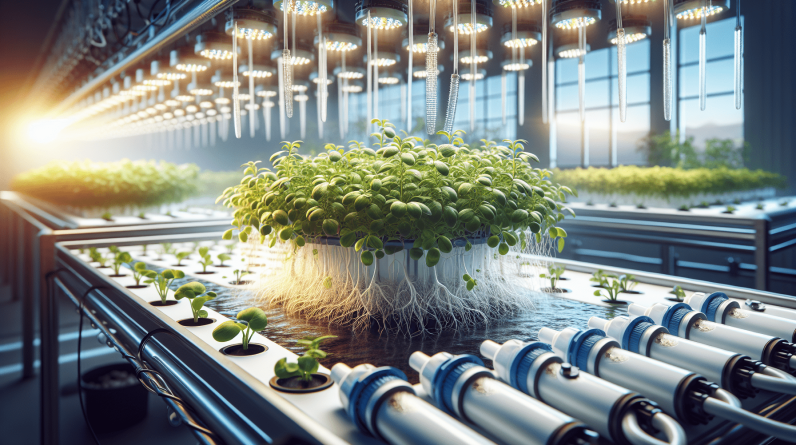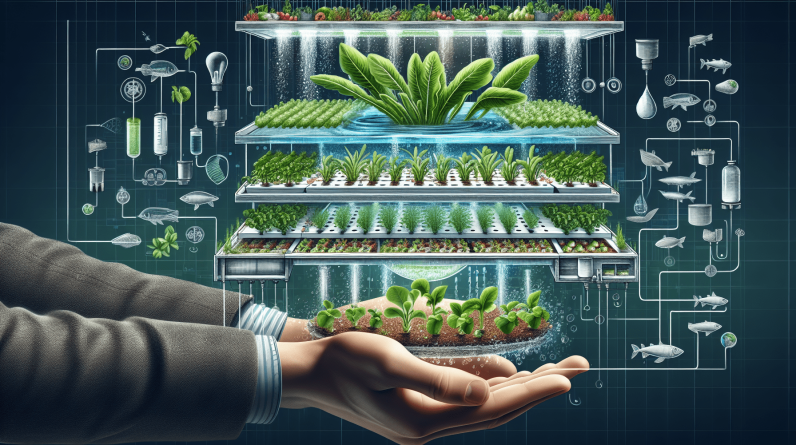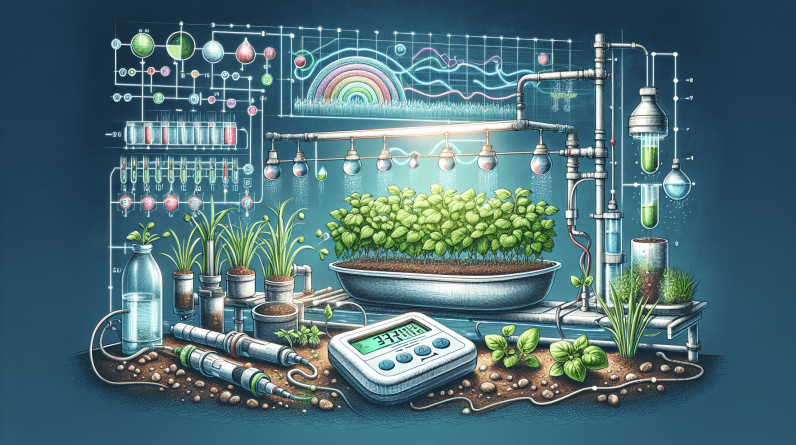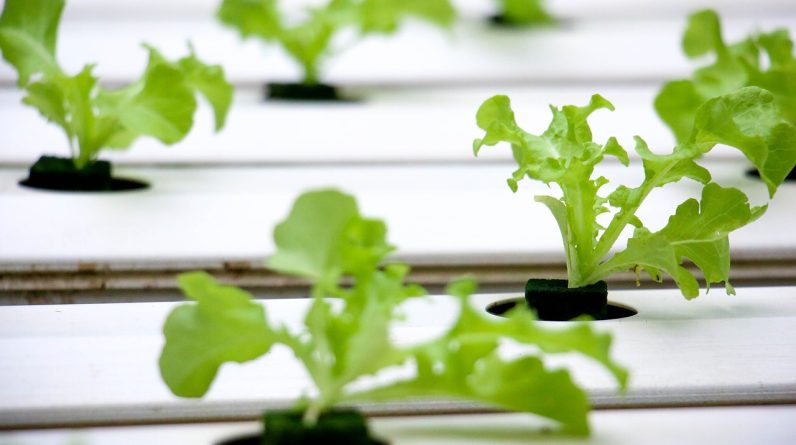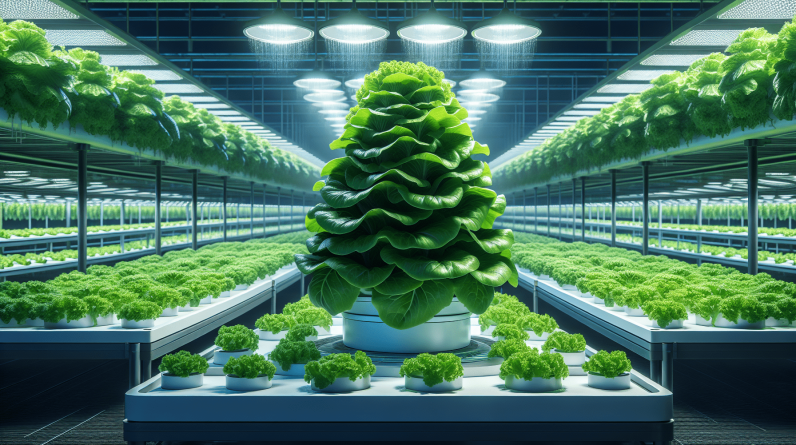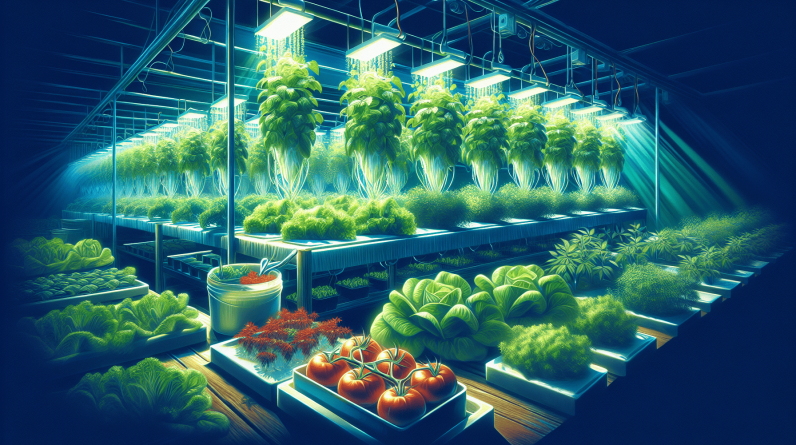
If you’re looking to eliminate soil-borne diseases in your vegetable garden, consider transitioning to hydroponic gardening. Hydroponic systems offer numerous benefits, such as faster plant growth, higher yields, and reduced water consumption. By providing a nutrient-rich solution directly to the roots, hydroponics eliminates the need for soil, reducing the risk of diseases and pests. This sustainable and efficient approach to gardening allows for year-round cultivation and healthier plants, ultimately resulting in fresh and nutritious crops for you to enjoy. Say goodbye to soil-borne diseases and hello to thriving vegetable gardens with hydroponic systems! Have you ever considered trying hydroponic vegetable gardening to grow fresh, healthy produce right at home? With hydroponic systems, you can eliminate soil-borne diseases and enjoy an abundance of nutritious crops without the need for traditional gardening methods. Let’s explore how you can successfully prevent soil-borne diseases in hydroponic vegetable gardening and reap the benefits of this innovative growing technique.
Understanding Soil-Borne Diseases
Soil-borne diseases are caused by various pathogens, including fungi, bacteria, nematodes, and viruses, that live in the soil and infect plant roots, stems, and leaves. These diseases can significantly impact crop yield and quality, making it challenging for traditional soil gardeners to grow healthy plants. In hydroponic systems, the absence of soil minimizes the risk of soil-borne diseases, providing a cleaner and more controlled environment for plant growth.
When you switch to hydroponic vegetable gardening, you eliminate the need for soil altogether, reducing the chances of soil-borne diseases affecting your plants. By understanding the different types of soil-borne diseases and their symptoms, you can effectively prevent and manage them in your hydroponic garden.
Common Soil-Borne Diseases in Vegetable Gardens
Soil-borne diseases can affect a wide range of vegetable crops, including tomatoes, cucumbers, lettuce, and peppers. Some common soil-borne diseases include:
- Fusarium wilt: Causes yellowing and wilting of leaves, leading to plant death.
- Pythium root rot: Causes waterlogged roots, stunted growth, and wilting.
- Verticillium wilt: Causes yellowing, wilting, and necrosis of leaves.
- Rhizoctonia damping-off: Attacks seedlings, causing stem rot and plant death. Identifying these diseases early on can help you take proactive measures to prevent their spread in your hydroponic garden.

Preventing Soil-Borne Diseases in Hydroponic Systems
While hydroponic gardening significantly reduces the risk of soil-borne diseases, it’s essential to implement preventive measures to ensure the health and vitality of your plants. By following these best practices, you can create a disease-resistant environment in your hydroponic system and maximize your crop yield:
Use Clean Growing Media
The growing media in your hydroponic system plays a crucial role in preventing soil-borne diseases. Choose sterile and inert materials, such as rockwool, perlite, or coconut coir, to provide a clean and disease-free environment for your plants. Avoid using soil-based media, as they may introduce pathogens into your hydroponic system.
When you start your hydroponic garden, ensure that your growing media is free from contaminants and pathogens. This initial step is crucial in preventing soil-borne diseases from affecting your plants and maintaining a healthy growing environment.
Practice Proper Sanitation
Sanitation is key to preventing the spread of soil-borne diseases in your hydroponic system. Regularly clean and disinfect all gardening equipment, such as trays, containers, and tools, to eliminate any potential sources of contamination. Avoid using tools that have come into contact with soil, as they may introduce pathogens into your hydroponic garden.
As you maintain your hydroponic system, make sanitation a priority to prevent the buildup and spread of soil-borne pathogens. By keeping your equipment clean and sterilized, you can create a disease-resistant environment for your plants to thrive.
Monitor pH and Nutrient Levels
Maintaining proper pH and nutrient levels in your hydroponic system is essential for preventing soil-borne diseases and promoting plant growth. Monitor the pH of your nutrient solution regularly and adjust it as needed to ensure optimal nutrient uptake by your plants. Additionally, check the nutrient levels in your solution to avoid deficiencies or toxicities that can weaken plant defenses against diseases.
By monitoring and adjusting pH and nutrient levels in your hydroponic system, you can create a balanced and healthy environment for your plants. This proactive approach can help prevent soil-borne diseases and ensure the overall well-being of your crops.
Implement Crop Rotation
Crop rotation is a simple yet effective strategy to prevent soil-borne diseases in your hydroponic garden. By alternating the types of crops you grow in your system, you can disrupt the life cycles of pathogens and reduce the risk of disease buildup. Plan your crop rotation schedule carefully to avoid planting susceptible crops in the same location consecutively.
Crop rotation not only helps prevent soil-borne diseases but also promotes healthier plant growth and higher crop yields. By diversifying the types of crops in your hydroponic garden, you can enjoy a variety of fresh produce while maintaining a disease-resistant growing environment.
Practice Integrated Pest Management
Integrated pest management (IPM) is a holistic approach to pest and disease control that focuses on prevention, monitoring, and intervention. By implementing IPM strategies in your hydroponic garden, you can effectively manage soil-borne diseases and other plant health issues. Use biological controls, such as beneficial microbes or predators, to combat pathogens and pests without the need for chemical interventions.
Integrating IPM practices into your hydroponic vegetable gardening routine can help you maintain a healthy and balanced ecosystem in your system. By working in harmony with nature, you can prevent soil-borne diseases and enjoy bountiful harvests of nutritious crops.

Disease Management in Hydroponic
While preventive measures are essential for eliminating soil-borne diseases in hydroponic systems, it’s also crucial to have effective disease management strategies in place. By recognizing the symptoms of common diseases and taking prompt action, you can protect your plants and prevent the spread of pathogens in your hydroponic garden.
Early Detection and Diagnosis
Early detection and diagnosis of soil-borne diseases are critical for effective disease management in hydroponic systems. Regularly inspect your plants for any signs of discoloration, wilting, or other abnormal symptoms that may indicate a disease. If you notice any suspicious changes, take immediate action to identify the cause and implement appropriate treatments.
By staying vigilant and proactive in monitoring your plants, you can catch soil-borne diseases early on and prevent them from spreading in your hydroponic garden. Quick and accurate diagnosis is key to implementing timely disease management strategies and protecting your crops.
Isolate Infected Plants
If you discover that one or more plants in your hydroponic system are infected with a soil-borne disease, it’s essential to isolate them immediately. Remove the affected plants from the healthy ones to prevent the spread of pathogens and protect the rest of your crop. Quarantine infected plants in a separate area or container until you can determine the best course of action.
By isolating infected plants, you can contain the spread of soil-borne diseases and minimize their impact on your hydroponic garden. This proactive measure helps safeguard the health of your other plants and prevents further contamination in your system.
Treat Infected Plants
Once you have isolated infected plants in your hydroponic system, you can begin treating them to manage the disease and restore plant health. Depending on the type of soil-borne disease and the severity of the infection, various treatment options can be effective, such as:
- Applying organic or synthetic fungicides to control fungal pathogens.
- Using beneficial microbes to outcompete harmful pathogens.
- Adjusting nutrient levels and pH to boost plant immunity and recovery.
- Removing and disposing of severely infected plants to prevent disease spread.
By treating infected plants promptly and effectively, you can limit the damage caused by soil-borne diseases and protect the overall health of your hydroponic garden. Implement targeted treatments based on the specific disease symptoms and pathogens affecting your plants.

Conclusion
In conclusion, eliminating soil-borne diseases in hydroponic vegetable gardening is possible by following preventive measures and implementing effective disease management strategies. By understanding the nature of soil-borne diseases, practicing proper sanitation, monitoring pH and nutrient levels, implementing crop rotation, and practicing integrated pest management, you can create a disease-resistant environment in your hydroponic system and enjoy healthy, thriving plants.
When you switch to hydroponic vegetable gardening, you embrace a sustainable and efficient growing method that minimizes the risk of soil-borne diseases and maximizes crop yield. By taking proactive steps to prevent and manage soil-borne diseases in your hydroponic garden, you can cultivate an abundance of fresh, nutritious produce all year round. Embrace the benefits of hydroponic gardening and say goodbye to soil-borne diseases for good!





